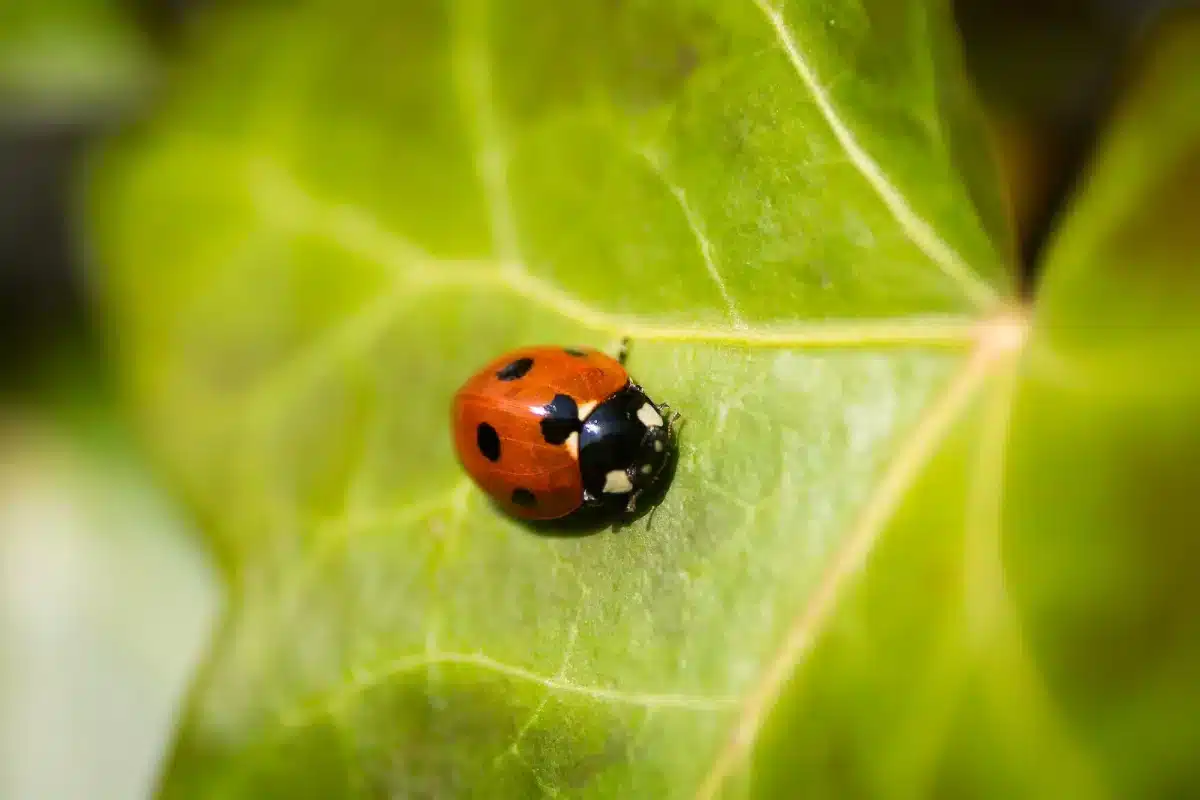By this time, your organic home garden is well on its way to filling your fridge with nutritious, healthy produce. But, what about the other critters and creatures that also want in? In this article, we’ll focus on the best methods of organic pest control for South African gardens.
If you missed the previous Parts, we suggest catching up now:
Read Part 1: Choosing the right location
Read Part 2: Prepping the soil
Read Part 3: Choosing what to plant
The problem with poisons
Many poisons are absorbed into plants’ tissues, which weakens their immune systems and renders them unable to repel further attacks. The result? You end up spraying more poison more often! Not to mention adding harmful chemicals into the ecosystem!
Rather, the answer lies in adopting an organic pest control approach, allowing a natural, healthy, balanced garden ecosystem to develop.
Healthy plants mean fewer pests
Just like a healthy body has a stronger immune system, so are healthier plants better equipped to deter and prevent pests. By following the steps outlined in our previous articles in this series, you should already be on the right path to biological pest control to prevent persistent pests from ruining your produce. Adding compost and organic fertilisers as part of the soil preparation process gives your plants a fighting chance against pests.
You can also avoid placing additional stress on your plants by:
- Choosing plants suited to the conditions and climate of your area
- Placing them in the correct positions such as full sun or semi-shade
- Ensuring that they get the right amount of water
- Watering at the right time of the day
- Spacing plants correctly
- Incorporating plant diversity
Even if you have the principles of organic gardening, you may still have the occasional pest infestation. These simple, eco-friendly strategies will help you manage common garden pests and diseases.
Be on the lookout
- Inspect your plants regularly for any damage and take action immediately
- Don’t forget to look under the leaves of plants for pests
- Handpick any insects you find and rub off any scale
- Keep an eye out for the eggs of pests on your plants
Companion planting
One of the easiest biological pest control methods for South African gardeners is to practise companion planting (allelopathy) by combining plants that benefit each other.
Plants with strongly aromatic leaves generally repel insects and can be planted among other veggies and plants. These include:
- Garlic
- Chillies
- Wormwood
- Elder
- Tansy
- Sage
- Lavender
- Mugwort
- Nasturtium
- Pyrethrum
- Rue
- Santolina
- Winter Savory
Other plants release chemicals from their roots that suppress or repel pests, thus protecting neighbouring plants. One example is the Marigold, which releases a nematode repellent called thiophene.
Create barriers for vulnerable plants
Physical barriers can help keep pests at bay, such as cardboard rolls fitted over young seedlings that are prone to cutworm. Scouring pads around plants deter snails from plants they love such as poppies and pansies.
Create decoys and traps
- Fruit flies struggle to resist strong-smelling baits made from fermenting fruit.
- Trap white-fly on strips of sticky yellow board.
- Containers of beer sunk into the soil can be used to lure snails
- Certain beetles can be trapped by adding a few drops of oil to a yellow container filled with water and a light shining on it overnight
Attract beneficial insects
Beneficial creatures such as wasps, spiders, certain ladybirds, praying mantis’, chameleons and lizards feed on common pests like aphids and caterpillars, keeping their numbers down in your garden. It is important to know, protect and allow these beneficial insects to multiply. One of the ways of doing this is to plant plants that attract beneficial insects, such as sunflowers, clover, common yarrow, buckwheat and many more.
An overview of common pests and how to control them organically
| Red Spider Mite | Mulching or spraying the bottom of the leaves with water. |
| Aphids | Use a sponge dipped in soapy water (made with green Sunlight soap) to carefully wipe the aphids from the plants. |
| Ants and Termites | Grind dry chilli flakes to a fine powder and sprinkle where the ants are active. |
| Snails | Sprinkle ash or crushed eggshells around plants to keep snails away. |
| Nematodes | Plant African marigold as a cover crop. |
| Cutworms | Grind eggshells and sprinkle them around seedlings. |
| Moths | Fill an old sock with a mixture of flour and salt and shake a small amount on the leaves.Cut tomato leaves and place them around the infected plants.Mix 1 teaspoon of salt into 2 litres of water for a spray. |
| Beetles | Spray with chilli or garlic spray. |
A pest control product like BioGrow’s Bioneem can help to keep gardens healthy and pest-free.
About Bioneem
Bioneem is a sought-after neem tree extract with the active Azadirachtin. Bioneem is a contact insecticide for the adult, larval, and nymph stages of your pests. Sucking, Chewing and Biting insects are affected by Bioneem through the ingestion of the active ingredient. It is organically certified for EU and NOP farming standards.
Want to learn more about soil health? Get in touch with the Zylem team. Contact us on 033 347 2893 or send us an enquiry.

